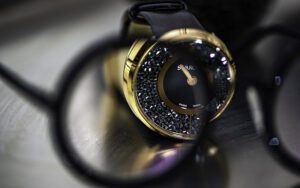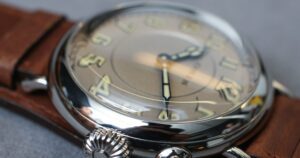Why don’t clocks tock-tick?
If you ask someone what sound a clock makes, their answer will be “tick-tock,” and never “tock-tick.” But every tick of the clock sounds the same – one doesn’t tick while the next one tocks – so why can’t a clock tock-tick?

First, we have to talk about ablaut reduplication. A reduplication is a word that is repeated, sometimes with a slight change, to alter the meaning or tone of the word. There are a few different types of reduplications:
Exact Reduplication
Bye-bye
Night-night
Rhyming Reduplication
Super-duper
Flim-flam
Comparative Reduplication
The dog got bigger and bigger.
I’m feeling worse and worse the more I eat.
Shm Reduplication
Fancy shmancy
Taxes shmaxes
Contrastive-focused Reduplication
Do you like it or like-like it?
The tacos were HOT-hot.
Ablaut Reduplication
Ping-pong
Kit-Kat
An ablaut is a variation of the vowel in a word to change it. Run and ran are ablauts, so are sing, sang, and song. Ablauts are always presented in a specific order. The word with an I comes first, followed by A or O.
This all sounds complicated, but this is a rule in English, and many other languages, that we all understand and follow without thinking about it. There’s no reason why you can’t zag-zig or cross-criss your arms, but it sounds wrong to us. So we wear flip-flops and go splish-splash in the tub. And if you find a rare case where three similar sounding words need an order, the I still comes first, followed by A, then O. Like when bells ding dang dong.
So next time you’re having a chit-chat with a friend and you notice the sing-song way an ablaut reduplication sounds, you’ll have a tip-top fact to share!



